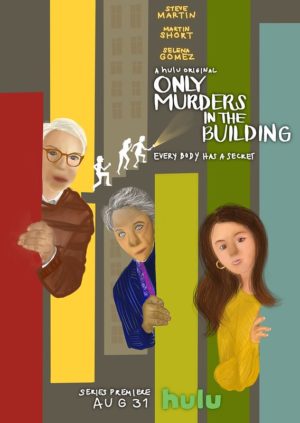We can enjoy the true crime genre without romanticizing killers
True crime media consumption has grown over the years with the increasing viewership of documentaries and crime shows
November 17, 2022
Jeffrey Dahmer, Ted Bundy and John Wayne Gacy are merely a small number of the thousands of notoriously vile serial killers across the US. These serial killers, and others, are growing in fame as the true crime genre continues to add to American television consumption. The accrescent popularity of true crime shows and documentaries coincides with the obsession over the gory and violence of the genre.
True crime has been widespread for years, dating back to the 60s when Truman Capote’s book “In Cold Blood” popularized the genre. Since then, America has amassed an audience fascinated by the murders and graphic details of true crime, with the average true crime connoisseur consuming around 84 episodes of crime TV shows per year. Obsessively watching true crime disturbs many, believing that this consumption is an unhealthy aspect of our societal interests. However, enjoying true crime media is reasonable. Throughout decades of increasingly unsettling cases, true crime evoked our much-desired appetite for an element of surprise and thrill.
This perplexing genre showcases real crime with actual people. Victims of killers who suffered for days, months, or even years are displayed on the screen, their experiences conveyed to the entire world for sympathy. Their portrayal incentivizes our want to find the “who,” “what” and “why” of cases, fulfilling our investigative instincts. Crime is something alien to many people and violence is typically believed to be an unappealing topic for human beings. But really, it’s quite the opposite. We naturally have a sense of morbid curiosity that is sated by true crime consumption.
Physiologically, true crime sparks the power of adrenaline. Watching victims on screen is a way for us to deal with our own anxiety and helps us acknowledge the possibility of these crimes affecting us. We can still experience the thrill and adrenaline of true crime from the safety of our homes. Psychologically, we can empathize with the victims while feeling relieved that it’s not us experiencing the suffering.
The whole intent of directors who produce this form of media is to educate, not influence. These directors attempt to entertain and keep the audience hooked to the stories while, at the same time, informing people of the dangers of crime. These shows examine the duplicities of the characters, finding ways to attract a wider audience. What’s scary to people is that some psychopaths are, at a first glance, “regular” people, which prompts a major reason to invest in true crime media.
“Obsession isn’t healthy.” This statement, although true, doesn’t necessarily apply in every context. Sure, doing too much of one thing isn’t good, but not everyone is affected the same way. One person could binge true crime TV and be traumatized for days while another could be immune to the fears of murder.
In addition, many defend their true crime obsessions by claiming that these documentaries and shows unlock the minds of criminals, providing insight into why these killers, well, kill. Netflix’s “The Confession Tapes,” released in 2017, is one of many series that reveals the thoughts and processes of a killer. Humans seek to understand the psychological madness behind these people, so they can avoid facing similar situations to the victims pictured on the screen. And by consuming true crime, people can control their fear of coming face to face with such unexpected circumstances.
While the glory of the true crime genre ought to be socially accepted, romanticizing serial killers, on the other hand, is morally unethical and plain disgusting. There’s a clear line between indulging in true crime and indulging in the actual killer, which many are blind to see. In light of “Dahmer – Monster: The Jeffrey Dahmer Story,” social media platforms such as TikTok have begun to see an upsurge in fan edits sympathizing with the titular serial killer. By diminishing Dahmer’s crimes, these self-proclaimed “obsessed fans” are desensitizing people to the stories of the victims’ and their families’ suffering.
Furthermore, certain members of the “true crime community,” while initially built off an innocent fascination, have taken a troubling turn. They have portrayed matters of hybristophilia, the sexual interest in and attraction to those who commit crimes. The growing trend of romanticizing serial killers isn’t necessarily new, as similar fan edits were made to Zac Efron’s portrayal of Ted Bundy in the 2019 Netflix film “Extremely Wicked, Shockingly Evil and Vile.”
However, this is not entirely the fault of the audience. Part of the blame falls on those creating true crime media, sparking the question of why their producers and directors choose conventionally attractive actors to play such evil people. When these bigshot companies put serial killers on a pedestal, those dealing with similar psychological issues start to idolize them. Casting appealing actors enables the romanticization of the true crime genre while adding an unnecessary blur between the actor and the person portrayed on the screen, inducing viewers to perceive the actual killers as attractive rather than the versions of them shown on screen. Netflix isn’t stopping with Efron or Evan Peters and his portrayal of Dahmer in “Monster,” going so far as to cast America’s heartthrob Timothee Chalamet to play the role of John Wayne Gacy, the infamous psychopathic clown serial killer.
True crime has become one of the fastest-growing forms of media, generating around $15 billion per year for Netflix alone. As America continues to explore and investigate the thrill behind true crime, indulging in podcasts and documentaries doesn’t make someone a bad person. As long as the media stops the romanticization of these notorious killers, continuing to watch true crime is an acceptable and growing part of American culture.






